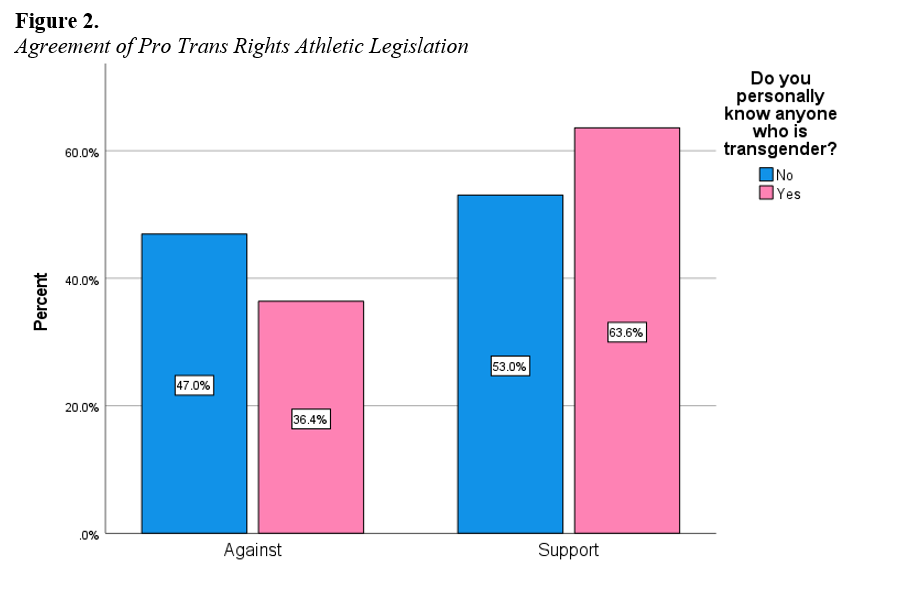Health Equity/Social Determinants of Health
Health Equity/Social Determinants of Health 5
453 - Who you know matters: Knowing someone who is trans and agreement with education and athletic legislation impacting trans youth
Saturday, April 29, 2023
3:30 PM - 6:00 PM ET
Poster Number: 453
Publication Number: 453.219
Publication Number: 453.219
Angela Calvin, University of Wisconsin School of Medicine and Public Health, Madison, WI, United States; Brittany J. Allen, University of Wisconsin School of Medicine and Public Health, Madison, WI, United States; Ellen Selkie, University of Wisconsin School of Medicine and Public Health, Madison, WI, United States
.jpg)
Angela Calvin, PhD (she/her/hers)
Postdoctoral Researcher
University of Wisconsin School of Medicine and Public Health
Madison, Wisconsin, United States
Presenting Author(s)
Background: The U.S. has seen an increase in education and athletic legislation impacting transgender youth, such as restricting the use of gender affirming pronouns in schools and transgender youth participation in sports. The motivation for supporting such policies remains unknown. According to intergroup contact theory, exposure to a transgender individual may increase support for policy that affirms transgender youth.
Objective: The purpose of this study is to examine whether knowing a transgender person relates to agreement with education and athletic legislation that protects the rights of transgender youth.
Design/Methods: A national sample of parents of children ages 0-17 were recruited from Qualtrics panels in August 2022. A survey assessed knowing a transgender person, relationship to the person, and agreement/disagreement with education and athletic policy affecting transgender youth. Policy questions asked about: disclosure of child’s gender identity to parents, transgender curricula, pronoun use in schools, sports participation based on gender identity, locker room use, and verifying athletes’ biological sex. We ran descriptive statistics, tested the association between relationship and policy agreement using ANOVA, and analyzed the relation between knowing a transgender person and policy agreement using logistic regression.
Results: Participants (n = 2,151) included 73% identifying as woman, 75% White, and 90% heterosexual. Among participants, 42% knew a transgender individual with 2.5% identifying as transgender themselves. About 30% of participants supported pro trans rights education policy. Participants who knew a transgender individual were 2.3 times (95% CI 1.89-2.76) more likely to support education policy that affirms transgender youth compared to participants who did not know a transgender individual. For athletic policy, about 58% of participants supported athletic policy that affirms transgender youth. Participants who knew a transgender individual were 1.5 times (95% CI 1.30-1.84) more likely to support pro trans rights athletic policy compared to participants who did not know someone who is transgender. Participants who knew a family member or a friend who is transgender were more likely to support pro trans athletic policy compared to other types of relationships, F(8, 2142) = 10.39, p < .001.
Conclusion(s): Individuals who knew a transgender individual were more likely to agree with education and athletic legislation that affirms transgender youth. Personal connection to a transgender person may help to explain supporting or not supporting policy that impacts transgender youth.
.png)

